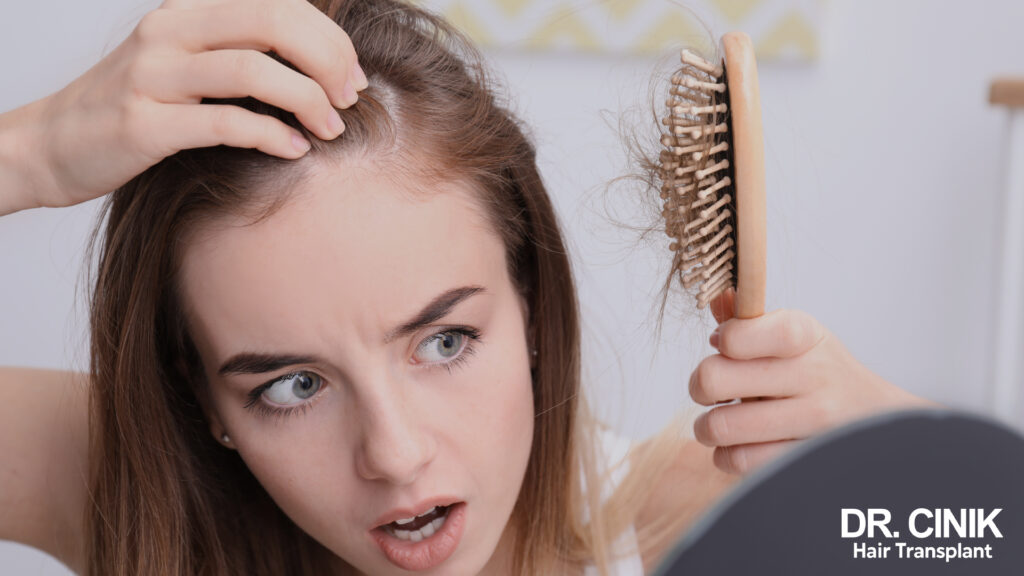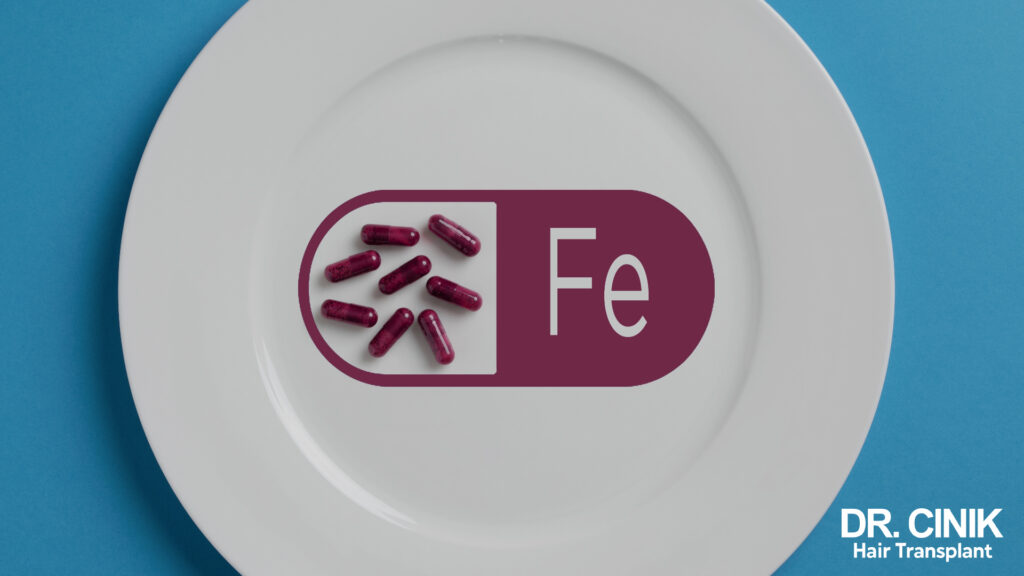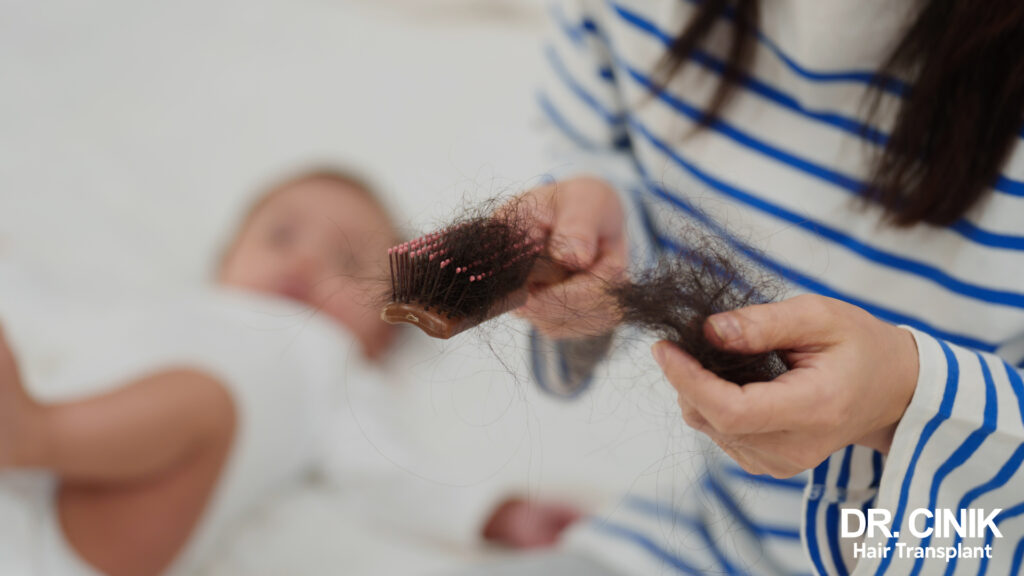Scabs On The Scalp: 11+1 Reasons for Scabs And Sore On The Scalp
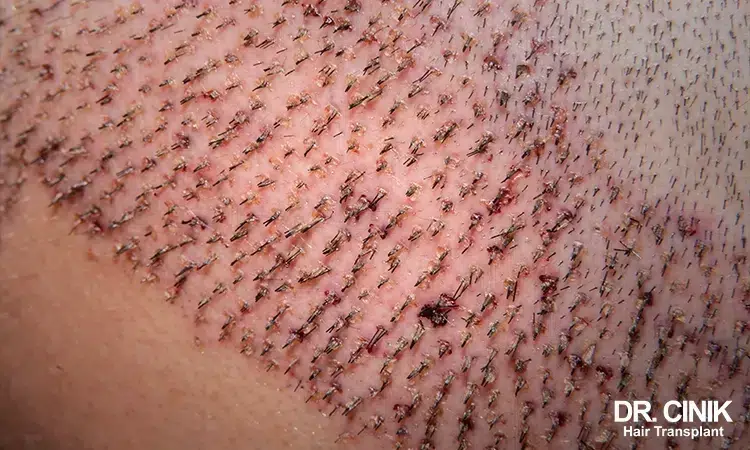
Summary
If you have experienced scabs and sores on the scalp, you might have experienced how itchy and painful they can be. They sometimes occur alongside hair loss which creates more concern and stress. Sometimes you might feel this scab on the scalp won’t go as its treatment is taking so long!
Since there are some 11 reasons for experiencing scabs or sores on the scalp, it is important to know which kind of scab or sore you are experiencing. Generally, there is no need to worry, but sometimes serious reasons can cause scabs or soreness on the scalp, and a medical examination would be necessary. 11 possible reasons for experiencing scabs or sore on the scalp and are introduced with appropriate treatment for each.
In some cases, scalp scab results in severe hair loss, damaging appearance, and self-confidence in people suffering from scalp scab. Hair loss can be temporary or permanent, each of which must have its own reasons.
Understanding the main reason for hair loss and baldness after experiencing scalp scabs is the initial step toward finding the solution. It is highly recommended not to initiate any intervention before consulting your doctor.
In cases where scalp scabs won’t go, a hair transplant would be the only method to gain a healthy and youthful appearance back. Here at Dr. CINIK hair hospital, we offer hair transplant services to patients who are experiencing hair loss after a scalp scab.
1. Contact Dermatitis
An allergic reaction to something you’ve touched may cause contact dermatitis. It’s a kind of eczema that causes the skin to become dry, red, and blistered. When an unpleasant object comes into direct contact with skin, it may cause painful feedback. It could also be an allergic reaction to jewelry or health and beauty products like shampoo and hair dye.
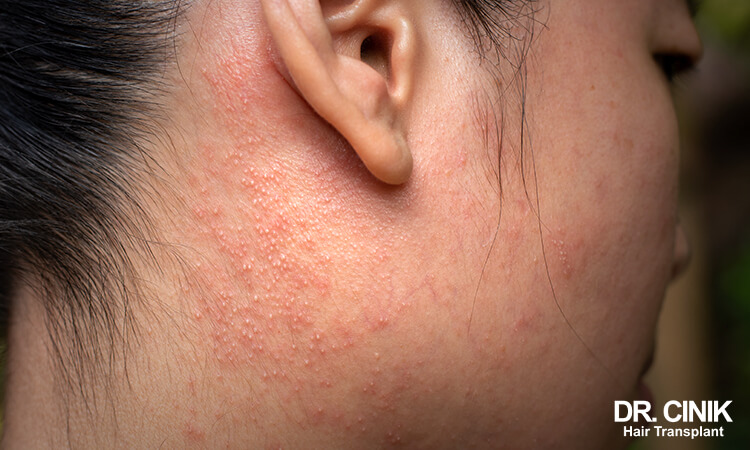
You may have a bad reaction if toxic substances, such as battery acid or bleach, touch your scalp. An allergic reaction can cause your scalp to develop dry patches that itch or burn. If you scratch, bleeding and scabbing can occur. It usually clears up on its own
If poisonous chemicals, such as battery acid or chlorine come into contact with the scalp, the skin can have a negative reaction. Itchy or burning dry patches can be created on the scalp as a result of an allergic reaction. Scratching can result in bleeding and scabbing. It normally goes away by itself.
The good news is contact dermatitis isn’t contagious.
What Is the Best Treatment for Contact Dermatitis on The Scalp?
Your scalp should clear up on its own, but see your doctor if the area:
Normally, your scalp can heal itself. You won’t need medical intervention unless:
- Pain grows
- Scab grows
- Scab feels infected
Try to find the irritant and carefully avoid any further contact as allergic reactions get fierce by repeated contact.
2. Seborrheic Dermatitis (Dandruff)
Another scalp skin condition is Seborrheic dermatitis, causing scab and sore on the scalp and has the following symptoms:
- Itching
- Flaking
- Scabbing
Crusty patches of skin may stick to the hair shaft and are normally white or yellow. In some cases, Seborrheic dermatitis could be greasy or scaly, and it can cause elevated bumps along the hairline in extreme cases. Scratching the rash will result in scalp injuries.
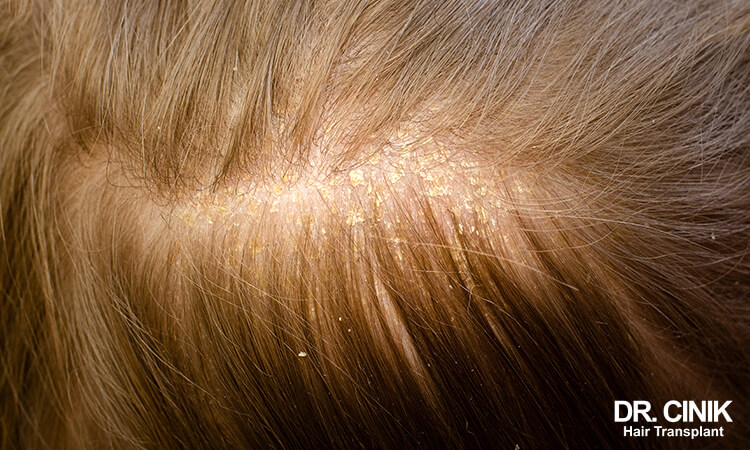
Having an unclear root, this condition is not contagious. It is not necessarily an indicator of unhealthy conditions or dirtiness! Even people with a daily shower in their routine can suffer from dandruff.
However, getting rid of dandruff might take a long time. In certain situations, it can develop into a long-term issue that comes and goes, which is stimulated by stress. Using special shampoos or applying topical steroids has proven to be helpful in some cases.
This condition is not limited to adults! Cradle cap, a term used for the type of seborrheic dermatitis of infants, is a common issue that can linger until their second birthday. Keeping the infant’s scalp moisturized and gentle massages can be helpful in some cases.
What Is the Best Treatment for Seborrheic Dermatitis on the Scalp?
OTC medicated shampoos, and topical ointments designed to treat dandruff can be useful. There are many available options for medicated dandruff shampoos, most of which can have ingredients like pyrithione zinc, salicylic acid, selenium sulfide, and tar.
Trial-and-error is a useful way to find the right shampoo that takes things in control of your condition. You might need to use prescribed shampoo if OTC medicated shampoos do not benefit you.
Prescribed shampoos usually contain Ketoconazole which has some side effects such as an itchy feeling, irritation, and changes in hair texture. Make sure to follow instructions, and if it does not help, you will need to contact your doctor.
3. Scalp Psoriasis
Psoriasis, which is not limited to the scalp and can have some effects on other parts and organs of the body, is a non-contagious skin disorder. In this condition, skin cells reproduce 10 times faster than usual. It may leave the scalp covered in thick scabs in different shades of grey. Studies indicate that in some half of the cases, scabs are observed on the scalp. It is not transmitted from one person to another.
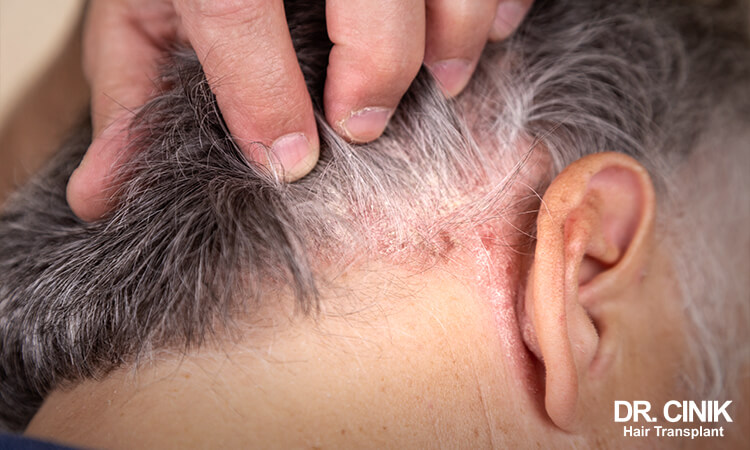
What is the best treatment for Scalp Psoriasis?
Mild cases often benefit from OTC medicated shampoo, including salicylic acid and tar, designed to treat the scalp and ease itching. You won’t need medical interventions unless the shampoo doesn’t work and the situation gets fiercer. In such conditions, the doctor might prescribe topical or injectable steroids.
Sometimes, scabs on the scalp caused by Psoriasis go along with swollen lymph nodes. Antibiotics might be required in such cases. You might find some situations which worsen the indicators for scalp psoriasis. It is wise to identify them and try to avoid facing them.
4. Injury
Another common cause of scabs on the scalp is injuries. A cut or scrape on the scalp may result from a minor injury. Avoiding irritants like shampoo and styling products can speed up the healing process. An infection of the scalp may result in painful scabs, blisters, and swelling. Infection symptoms include:
- poor recovery
- rust colored flowing out of the injury
- fever
- Tenderness or discomfort around the injury
What is the Best Treatment for Scabs on the Scalp Caused by Injuries?
Small cuts and scrapes may normally be treated at home, but if the wound is deep and painful, medical treatment may be required. If you suspect an infection, you can see a doctor as soon as possible to ensure a fast recovery and minimize the possibility of complications. Antibiotics are effective against the majority of bacterial infections.
5. Seborrheic Eczema
One rare condition causing scabs on the scalp is Seborrheic eczema. Scalp gets inflamed, swollen, and scaly by seborrheic eczema. Itchy and inconvenient thick scabs can grow. Seborrheic eczema can spread to the face, neck, and behind the ears as a result of the inflammation. It can spread across the body in extreme cases.
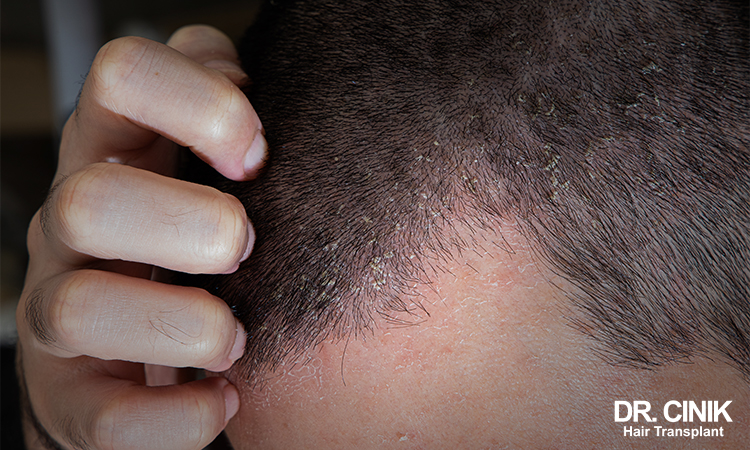
The illness isn’t infectious, and no one knows what causes it.
What Is the Best Treatment for Scab on the Scalp Caused by Seborrheic Eczema?
Medicated shampoos containing ingredients such as pyrithione zinc, salicylic acid, selenium sulfide, and tar can aid in the softening of eczema scales. In extreme circumstances, paying a visit to a doctor and getting prescribed medicine can be beneficial.
6. Ringworm of the Scalp
A highly contagious fungal infection caused by common parasites, Ringworm, or dermatophytosis is another condition for experiencing Scabs or sores on the scalp. It often spreads by direct contact with an infected person. It can involve skin, scalp, and hair shafts. Infected areas might feel itchy, and have scaly patches. It is often observed in children.
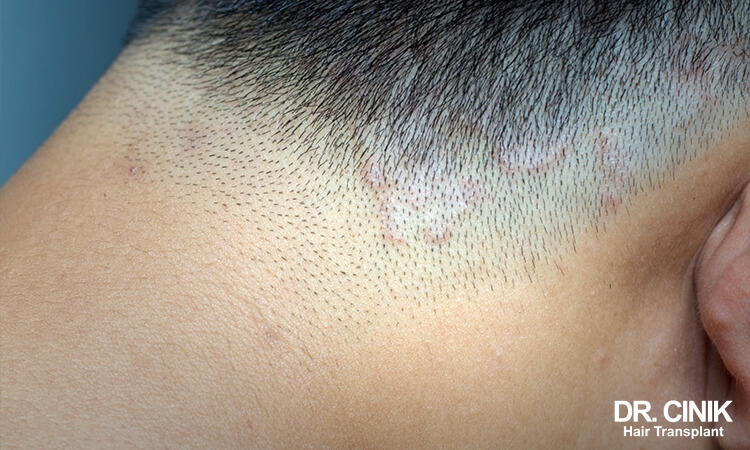
What Is the Best Treatment for Scab on the Scalp Caused by Ringworm?
If symptoms of Ringworm of the scalp are seen, pay a visit to a doctor immediately as it can get dangerous and show symptoms like extreme inflammation, scarring, and permanent hair loss. Intake of antifungal medications would be necessary because applying lotions or creams might not work. Based on the fierceness of the situation, it might be necessary to prescribe special shampoo to speed up the healing process.
7. Head Lice
As scary as it sounds, head lice are another major reason for experiencing scabs on the scalp, which are highly contagious and can easily transfer between people. Aside from being highly contagious, controlling the situation when being infected by head lice is not that complicated. Head lice cannot live long without being fed and do not carry any kind of disease.
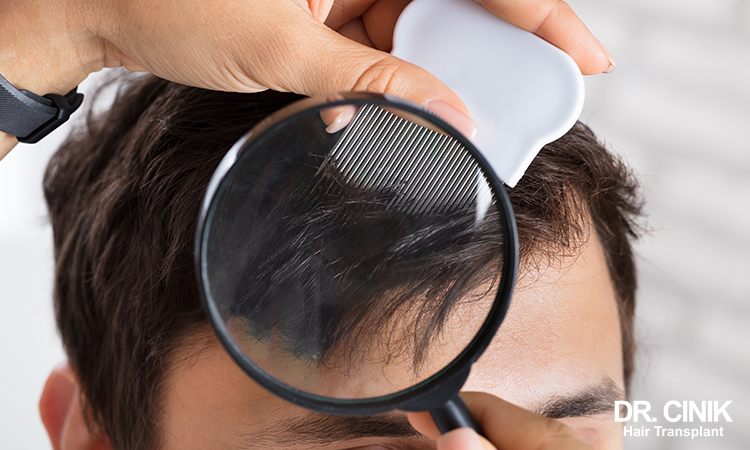
An infected person might feel something itchy is moving between hair. Scratching the scalp might end in scabs and a scar on the scalp.
The Best Treatment for Scab and Sore Created by Head Lice
As mentioned, the biggest problem with head lice is its highly contagious characteristic. The first step in any treatment process for a case of the infected scalp by head lice is keeping every surface and material in contact with the scalp clean and washed.
Head lice cannot survive much having no access to food and an infected person’s scalp! So, for materials that are difficult to wash, keeping them in a bag for about 2 weeks can have all of them killed.
You can comb your hair and wash the combs and hairbrushes with boiling water. You need to be patient and follow the steps given on the related products.
8. Acne
When hair follicles become blocked with oil and dead skin cells, inflamed and infected areas are created on the scalp, called Acne or pimples, which is a usual reason for experiencing scabs or sore on the scalp. It is usually because there is a large number of oil glands on the scalp.
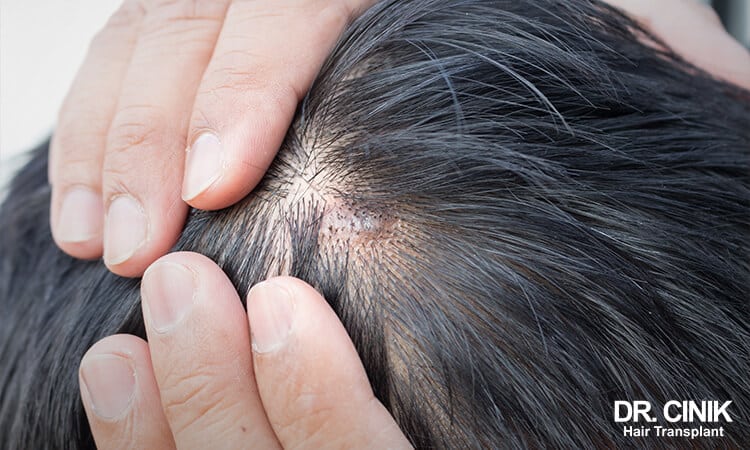
The Best Treatment for Acne on the Scalp
Usually, acne is treated automatically by itself, and letting it be might be the best solution. Some people try to squeeze or scratch them, which can result in infections and severe conditions. There remain special shampoos for this condition, but in severe conditions, it is totally necessary to pay a visit to a doctor.
9. Shingles
Caused by the same virus causing Chickenpox, shingles can occur on the scalp and create scabs and sore. This virus remains and gets deactivated in the body after getting chickenpox but can reactivate itself if the immune system gets weak and experiences risky conditions. Shingles are not contagious and can linger for months.
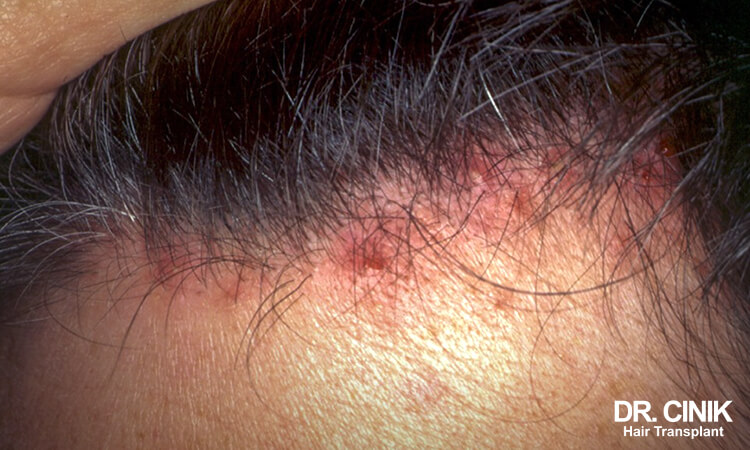
The Best Treatment for Shingles Causing Scab on the Scalp
It seems easier to avoid a situation than to deal with it. Keeping the immune system alert might be beneficial for many other conditions! But if you are experiencing shingles on the scalp, you can intake pain killers, apply topical creams or lotions, and use antiviral medication.
10. Eosinophilic Folliculitis
More common among people infected by HIV, Eosinophilic folliculitis is an itchy skin condition that can occur on the scalp and cause scalp scabs. Inflamed, itchy sores can be seen on the scalp, and even after healing, patches or darker skin sides can be left. It is possible to occur for people not experiencing HIV infection, which is called the Ofuji disease.
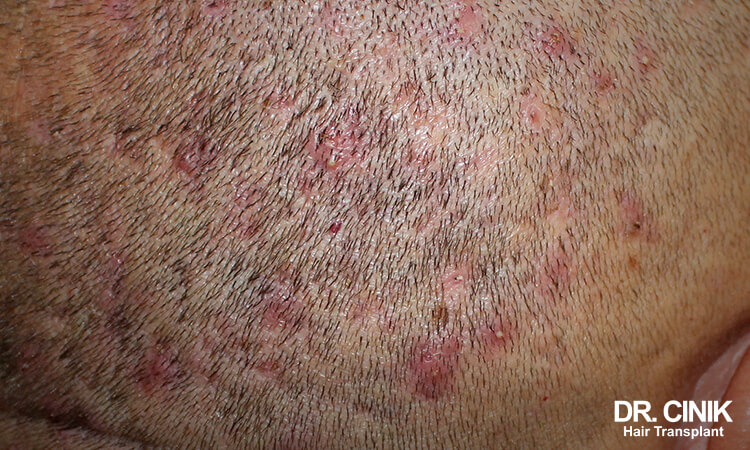
Treatments for Eosinophilic Folliculitis
For relieving the symptoms, special shampoos, creams, and medications can be used.
Anyone with HIV that develops skin or scalp scabs should consult a doctor.
11. Skin Cancer on the Scalp
Skin cancer is one of the causes of scalp scabs. It occurs in the parts of the body which is exposed to sunlight regularly, and the scalp is one of those areas. Skin cancer is not contagious and has several types. Indicators for skin cancer include
- Experiencing sore for a long time
- Inflamed and large patches
- Shape, size, or color-changing spots on the skin
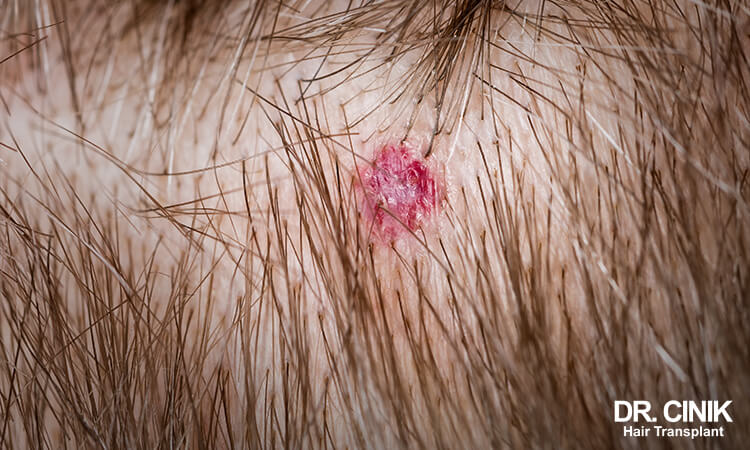
Treatments for Scalp Scabs Caused by Skin Cancer
As skin cancer is a medical condition that needs medical intervention, people experiencing any of the aforementioned indicators need to pay a visit to a doctor immediately to have things under control.
Special Condition: Scabs On Scalp After Bleaching
You might want to change the color of your hair, turn your dark hair to blonde hair or try something fancy and try an exotic color on your hair! However, as we always suggest, you need to only trust professionals for any service you get for your hair and use the highest quality materials when you want to apply them or use them. In many cases, not using high-quality materials or missing materials result in burning your scalp after dying your hair and creating scabs on your scalp.
The chemicals in hair bleach include ammonia and peroxide. Irritating dermatitis can happen if the chemicals used to cause a caustic reaction. This skin reaction happens when something hurts the protective layer outside your skin. Since hair bleach contains harsh chemicals that are also used to clean germs off of surfaces, it’s not surprising that it can irritate the skin.
How Can You Avoid Scabs on Scalp After Bleaching?
If you want to avoid having to deal with the unpleasant side effects of hair bleaching or reduce the risk of bleach burn, try the following:
- Never, ever attempt this on your own (NO DIYs! Seriously!). Depend solely on actual professionals.
- Perform a patch test to see if you are allergic to hair bleach.
- Ideally, 3–4 days before your appointment, avoid washing your hair. Generally speaking, the longer an item is, the better. To prevent the bleach from damaging your scalp, this can help you produce a layer of oil on top of your head.
- Make sure to alert the colorist immediately if you experience any unusual discomfort.
How Can You Get Rid of Scabs on Scalp After Bleaching (Dying) your hair?
- If it is only a minor irritant, rinse your scalp with cool water for at least 5 to 10 minutes before applying moisturizer.
- For at least a week, avoid using a hair dryer after washing your hair.
- Aloe vera can be used either at room temperature or chilled. To help reduce the inflammation, you can also take anti-inflammatory drugs like Advil.
- Leave scabs alone if you have scarring from a scalp burn; picking them off can delay healing and promote infection. Additionally, try to avoid using harsh products, excessive heat, or other things that could harm your skin further.
- Consult a dermatologist if you have persistent itching that lasts for weeks.
DIY And Home Treatments for Scalp Scabs
Experiencing scabs or sores on the scalp, some natural and homemade remedies (aka home remedies) can help relieve the pain and speed up recovery. Among them, the following are proven to be the most popular ones:
- Aloe vera gel
- Fish oil
- Omega-3 supplements
- Tea tree oil
Is It Necessary to Visit a Doctor If You Are Experiencing Scalp Scabs or Scalp Sores?
There are several possible reasons for experiencing scalp scab or scalp sore. Some of them are not severe and can be treated over time, such as Acne and minor injuries.

On the other hand, some situations call for medical intervention and immediate reaction. If there are scaling patches, changes in the shape, color, or size of the spots, or if you feel scab areas are infected and the scabs won’t go away, it is recommended to have medical consultation immediately.
Do Scalp Scabs Cause Permanent Hair Loss?
As some conditions cause itchy and painful areas on the scalp skin, you might scratch or squeeze some parts of the scalp, which might cause damage, infection, and, eventually, hair loss. In some conditions, delayed interventions might end in permanent loss of hair.
Hair loss also can have some other reasons, such as genetic reasons, and they can be accelerated by scalp scabs. Vitamin deficiency, an unhealthy diet, and high-stress levels can cause hair loss. In some cases, changes in vitamin intake, diet, and any medical intervention like applying prescribed solutions and lotions that affect the scalp do not recover hair after severe hair loss. A hair transplant is the only possible solution for this kind of hair loss.
Are There Other Causes for Scalp Scabs?
We covered an array of causes that leads to scalp scabs. Experts believe that there are other reasons for experiencing scalp scabs, for instance, Dermatitis, Herpetiformis, Lupus Lesion, Impetigo, and cysts. Each condition can cause a unique level of scabs or sores on the scalp. The important thing to consider is that if the symptoms won’t go away or they feel infected or grow and change, you need an immediate doctor’s check.
Are Scabs on the Scalp Normal?
In many cases, experiencing scabs on the scalp is not something to worry about. They are not always indicators of dirtiness or hygienic problems; in many cases, they get well automatically. You should consider that experiencing painful and itchy spots might result in scratching and squeezing, and it can cause the following problems. Try to avoid physical contact and if indicators are developing, try to visit a doctor.
Hair Transplant and Scalp Scabs
A recognizable number of our patients at Dr. CINIK Hair Transplant have experienced hair loss in the areas that have suffered from scalp scabs. As permanent hair loss in these areas does not have any final solution, hair transplant surgery is believed to be the only method to recover the appearance and enjoy uniform hair growth. It is minimally invasive (FUE and DHI have very small incisions) and a permanent solution for hair loss in patches due to scalp scabs.
If you have lost hair on some parts of your scalp after experiencing scalp scabs, here at Dr. Cinik Hair Transplant in Istanbul, Turkey, we can help you recover your appearance. You just need to get a free consultation to start your journey with Dr. Cinik Hair Transplant.
Scabs After a Hair Transplant
Two days after a hair restoration surgery, scabs appear on the patient’s scalp. In fact, seeing scabs after a hair transplant (and itchy scalp) is totally normal and is a sign of recovery in the transplant area. Both the donor and the recipient area need a recovery period, but it is the recipient area where scabs start to appear.
If you follow the instructions given by your clinic and wash your hair carefully with the shampoo your doctor suggests, the scab removal step will be very smooth, causing no serious concerns. You must gently massage your scalp (as your doctor instructs) to remove the scabs. Scab removal can start anywhere between 10 to 12 days after hair transplantation.
Dr. Emrah Cinik Hair Transplant is one of Turkey’s most renowned hair transplant centers. Dr. Emrah Cinik and his team offer you a unique quality built on years of experience, cutting-edge technology, high standards, and warm support. You can get a free consultation right now.

